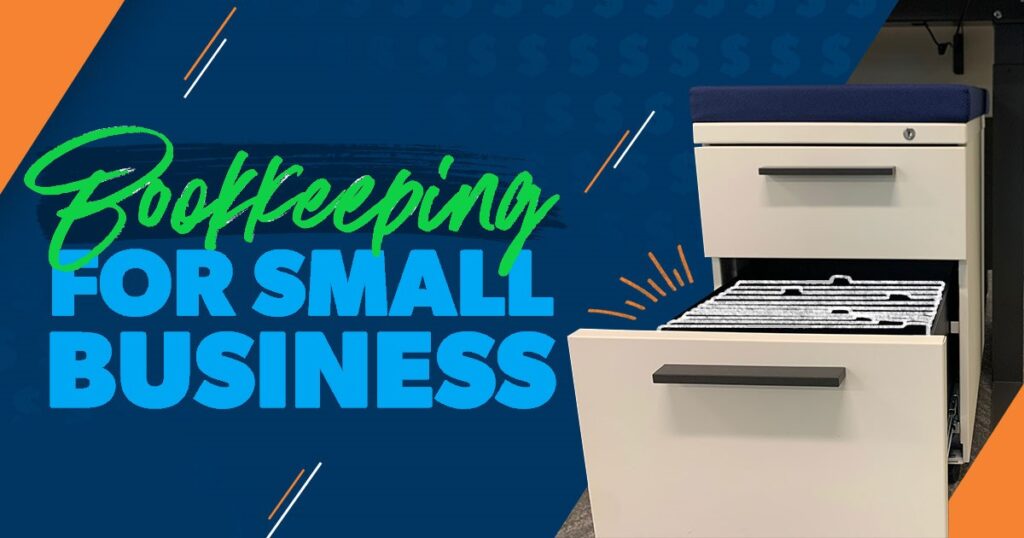In the fast-paced world of small businesses, one crucial aspect that often gets overlooked is bookkeeping. Properly managing your financial records is essential for the success and growth of your company. However, many entrepreneurs need help understanding the intricacies of bookkeeping. This comprehensive guide will delve into the fundamentals of bookkeeping for small businesses, providing you with the necessary knowledge and tools to manage your financial records and make informed business decisions effectively.
What is bookkeeping, and why is it important?
Bookkeeping is recording, organizing, and maintaining a business’s financial transactions. It involves tracking income, expenses, assets, liabilities, and equity. Proper bookkeeping is vital for small businesses for several reasons. It helps you keep track of your financial health, provides insights into your business’s profitability, facilitates decision-making, ensures compliance with tax regulations, and enables you to plan for the future.
How to set up a bookkeeping system for your small business?
To establish a solid bookkeeping system, follow these steps:
a) Determine your bookkeeping method: choose between single-entry or double-entry bookkeeping.
b) Decide on the chart of accounts: create a list of categories to track your income, expenses, assets, liabilities, and equity.
c) Set up a filing system: organize and store physical or digital copies of receipts, invoices, and other critical financial documents.
d) Choose bookkeeping software or a spreadsheet template: Choose a tool that aligns with your business needs and budget.
Managing income and expenses:
We are recording and categorizing transactions.
To effectively manage your income and expenses:
a) Record every transaction: accurately document each financial transaction, including sales, purchases, payments, and receipts.
b) Categorize transactions: assign appropriate categories, such as sales revenue, operating expenses, or loan repayments.
c) Reconcile accounts regularly: compare your recorded transactions with bank statements to ensure accuracy.
Understanding financial statements and reports:
Financial statements provide a snapshot of your business’s financial performance. Key statements include:
a) Income statement: summarizes revenue, expenses, and net income or loss over a specific period.
b) Balance sheet: shows the financial position of your business at a specific point in time, including assets, liabilities, and equity.
c) Cash flow statement: tracks the inflow and outflow of cash, providing insights into your business’s liquidity.

Tips for effective bookkeeping:
Organization and consistency.
To maintain efficient bookkeeping practices:
a) Establish a regular schedule: set aside dedicated time to update your books consistently.
b) Keep personal and business finances separate: maintain separate bank accounts and credit cards for your business.
c) Maintain accurate records: ensure all transactions are recorded promptly and accurately.
d) Perform regular audits: periodically review your financial records to identify errors or discrepancies.
Hiring a professional bookkeeper vs. a DIY bookkeeper
Consider the pros and cons of hiring a professional bookkeeper versus handling bookkeeping tasks yourself. Factors to consider include your business’s size, complexity, budget, time availability, and expertise.
Utilizing bookkeeping software for small businesses
Explore bookkeeping software options for small businesses, such as QuickBooks, Xero, or Wave. These tools streamline the bookkeeping process, automate tasks, and provide real-time financial insights.
Common mistakes to avoid in bookkeeping
Be aware of common bookkeeping errors to prevent financial inaccuracies. Mistakes to avoid include:
- Inconsistent record-keeping.
- Please reconcile accounts.
- Improper transaction categorization.
- Need to back up data.
Ensuring compliance with tax regulations
Stay updated on tax regulations and obligations specific to your business. This includes understanding sales tax requirements, filing deadlines, deductible expenses, and keeping accurate records for tax purposes.
Monitoring cash flow and making informed financial decisions
Regularly monitor your cash flow to ensure your business has sufficient funds to cover expenses and operate smoothly. Analyze financial reports, identify trends, and make informed decisions to improve profitability and sustainability.
Conclusion
Bookkeeping is a fundamental aspect of running a successful small business. By understanding the basics and implementing effective bookkeeping practices, you can gain valuable insights into your business’s financial health, make informed decisions, and ensure compliance.

